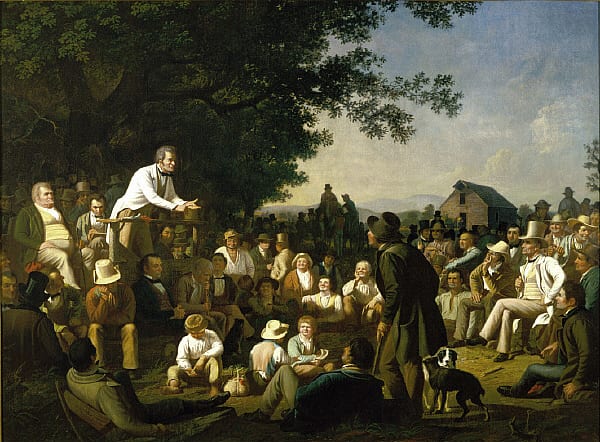The following sheets contain the information given by me to the legislature of Maryland, when officially called before them for that purpose:—No friend to his country will think that they require an apology; I should have been unworthy the trust reposed in me, and guilty of the blackest ingratitude to a State, which has given me the most distinguishing marks of its confidence, had I not been explicit.— No fact has been intentionally mis[s]tated by me, I aimed to be perfectly correct; and, though in some measure obliged to depend on my memory, I believe I have in no instance, given malice an opportunity to charge me with misrepresentation. No writer, with his name, has denied the information to be just—I think they never will—though we differ in politics, should it be necessary, there are men of honor who were in the convention, who are ready to decide in my favour; and I can, with confidence, appeal to a Washington, a Franklin, and other respectable members of the convention, for the veracity of my information. Few, very few, even of the anonymous publications have insinuated the information to be in any respect uncandid; and those few have confined themselves to generals, without daring to descend to particulars.—The lowest scurrility in the form of Extracts of letters, coined at the mint of meanness and falsehood, I have experienced; it is what I expected; I know myself, and I am known by others, to be infinitely above them, and have read them with a smile of contempt—Me they cannot injure;—This is a trifling sacrifice—In the cause of freedom, were it necessary, I am ready to make a much greater.
As Far as I have expressed my opinions of the views of the framers of the constitution, I have followed the fullest conviction of my mind, founded on my own observations made on their conduct while in convention, and confirmed by the conduct of the friends of the system since that time.—They were my sentiments while there; I at that time expressed them freely, and then found many who perfectly corresponded with me in sentiment, although some of them may not now choose to avow it, or, no doubt from a conviction of their error, may now advocate the system they there condemned and opposed. But as to myself, so far from having any reason to change the opinion I there formed, every circumstance which has since taken place has confirmed it.
The conduct adopted by the convention, rendered the dissemination of these sheets the more necessary: Could there possibly be a greater indignity and insult offered to the majesty of the free States, and the free citizens of America, than for the very men who were entrusted with powers for the preservation and security of their rights, and for the establishment of a permanent system to promote their happiness, to make use of that power to destroy both the one and the other?—For this purpose, in time of profound peace, to shut themselves up in mystery and darkness; to keep all their deliberations an absolute secret from their constituents, who were to be affected thereby; to prevent the publication of their journals; to deprive the free citizens of America of every means of information: to attempt to pass upon them, as meeting with their unanimous approbation, that which did not in reality meet with the perfect approbation of perhaps one individual in the convention; to give you no other alternative but to accept of it as proposed, without alteration, or to reject it entirely, while at the same time some of them were resounding, from one end of the continent to the other, the necessity of its acceptance, and that non but the enemies of their country would reject it—And to abuse your confidence in them, by endeavouring to hurry you into a hasty adoption, under that delusion, before you could obtain information and be able to form a proper judgment for yourselves.
Such a conduct in any other country , or even in this, at any other time, would have drawn down upon them the indignation and resentment of those who were thus attempted to be abused and enslaved.
To counteract the views of ambition and interest has been my aim—To this I devoted every effort while in convention—The same motives have directed my conduct since—Should my exertions in the smallest degree assist in effecting the rejection of this detestable system of slavery, I shall enjoy the highest possible gratification, that of rendering my country an essential benefit.
But should the system be adopted, I shall even then enjoy the highest possible consolation which a good citizen can enjoy in the public calamity, that of having conscientiously discharged my duty to my country, by endeavouring to avert it.
BALTIMORE, March 30, 1788.



